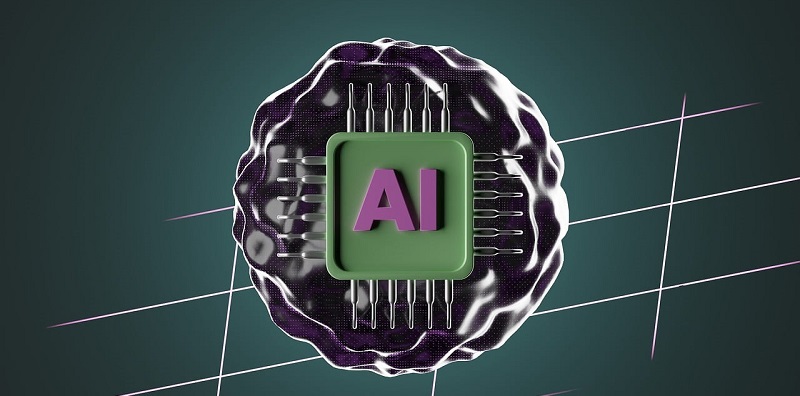The insurance industry has always been known for its complex processes, lengthy paperwork, and time-consuming claims procedures. However, advancements in Artificial Intelligence (AI) are now dramatically transforming the way insurance companies operate. By harnessing the power of AI, insurers can not only improve their customer service and streamline processes but also minimize risk. In this blog post, we will explore how AI is revolutionizing insurance as we know it, empowering companies to better serve customers while minimizing risk.
The Importance of Digital Data in Driving AI Advancements in Insurance
The answer to how AI is revolutionizing insurance lies in the increasing amount of digital data available today. With the widespread adoption of smartphones, social media platforms, and wearable devices, insurance companies now have access to vast amounts of customer data. This data includes not only personal information but also browsing habits, online purchases, and social media activities. By leveraging this data, insurers can gain insights into their customers’ behaviors, preferences, and risk profiles, ultimately improving their underwriting process and customer experience.
Utilizing AI for customer insights and improving the underwriting process
With the help of AI, insurers can analyze customer data to gain valuable insights. Machine learning algorithms can identify patterns and trends, helping them better understand customer needs and preferences. This enables insurers to tailor their insurance offerings to individual customers, providing them with customized policies that meet their unique requirements. By leveraging AI for underwriting, insurers can also streamline the process, reducing the time and effort required to assess a customer’s risk profile. This not only improves operational efficiency but also enhances the overall customer experience.
The Role of AI in Preventing Insurance Fraud Through Data Analysis
Insurance fraud is a significant challenge faced by insurance companies. It costs the industry billions of dollars annually and affects the premiums paid by honest policyholders. AI has emerged as a powerful tool in the fight against insurance fraud. By analyzing large amounts of data and identifying potential red flags, AI-powered systems can quickly flag suspicious claims and help prevent insurance fraud. Machine learning algorithms can detect patterns indicative of fraudulent behavior, such as duplicate claims, inconsistencies in personal information, or unusual claim patterns. This proactive approach enables insurers to take appropriate action to prevent fraudulent claims, reducing financial losses and protecting the interests of policyholders.
Predicting Future Outcomes and Risks Using Historical Data and Machine Learning Algorithms
One of the most significant benefits of AI in insurance is its ability to predict future outcomes and risks. By using historical data and machine learning algorithms, insurers can accurately analyze past patterns and trends to forecast future events. This predictive capability enables insurers to make informed decisions regarding risk assessment and pricing. By leveraging AI’s predictive power, insurers can identify potential risks and take proactive measures to mitigate them. For example, AI algorithms can identify areas prone to natural disasters and adjust policies accordingly. This not only protects the insurance company’s financial interests but also ensures that policyholders are adequately covered during catastrophic events.
Speeding up the claims process through computer vision technology
The claims process is often seen as a cumbersome and time-consuming task for both policyholders and insurers. However, AI is revolutionizing this process through computer vision technology. This technology uses computer vision to analyze images of damaged property or vehicles and provide instant estimates for repairs, speeding up the claims process for customers. This not only improves customer satisfaction but also reduces administrative costs for insurers. By automating the inspection and estimation process, insurers can process claims faster and more accurately, ensuring a smooth and efficient claims experience for policyholders.
Benefits of AI in Insurance
AI has transformed various aspects of the insurance sector, from streamlining processes and improving customer experience to detecting fraud and predicting risks. For insurers, it has enabled improved risk assessment, enhanced customer experience, reduced costs through automation, and detection of fraudulent activity. By leveraging the power of AI, insurance companies can streamline their operations, improve efficiency, and provide better services to their policyholders.
In conclusion, AI is revolutionizing the insurance industry by empowering companies to better serve customers while minimizing risk. Many tasks that were previously done manually can now be automated with the help of AI-powered systems. By leveraging AI for customer insights, insurers can customize their offerings and improve the underwriting process. AI’s data analysis capabilities enable insurers to effectively detect and prevent insurance fraud. Moreover, AI’s predictive power allows insurers to make informed decisions by analyzing historical data and forecasting future risks. Additionally, computer vision technology speeds up the claims process, enhancing customer satisfaction.

